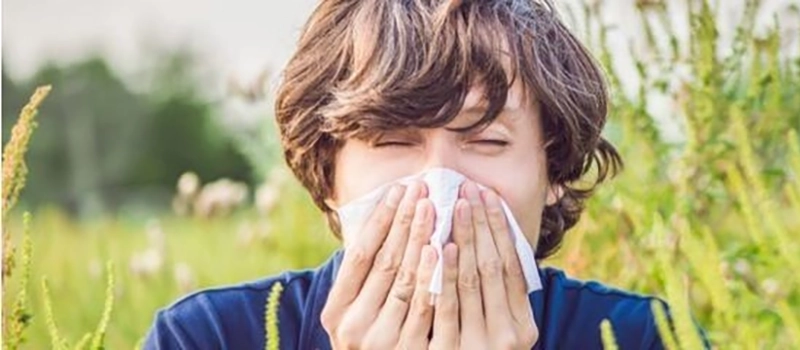
Spring comes around every year, and most people are especially happy to see it considering how winter seems to never end. Longer days and warmer temperatures are great, and most people are pleased to see all the flowers and foliage starting to bloom. We stress most people there because there are some people for whom blooming plants mean pollen in the air, and for them that means seasonal allergies symptoms. What are the symptoms of seasonal allergies? Sneezing and constantly itchy and watery eyes are the most common of them for most sufferers, but there can be others as well.
Needless to say, if you’re one of these people then spring means it’s also time to have plenty of antihistamine tablets on hand. Antihistamines won’t need any introduction for many of you, but we’ll look at what they do and why they’re so essential for people who don’t want to tolerate seasonal allergies symptoms any longer than they have to. The spring bloom does eventually pass, but seasonal allergy sufferers will definitely need to be proactive in order to enjoy it the same way everyone else does.
Seasonal allergies is also known as hay fever or allergic rhinitis, but it is best to understand it as a condition where the person is allergic to weeds that pollinate. Estimates are that around 8% of adults in the U.S. have allergic rhinitis, and around 9% of children.
The extent to which a person is exposed to pollen will dictate how severe their seasonal allergies symptoms will be. Common seasonal allergies symptoms include:
Sneezing
Stuffy or runny nose
Itching and watery eyes
Ear canal congestion
Postnasal drainage
Less common symptoms include:
Shortness of breath
Headache
Wheezing
Coughing
Hoarseness
Diminished sense of smell
Snoring (due to increased sinus congestion)
People who have asthma as well as seasonal allergies can have asthma attacks triggered by seasonal allergies symptoms. In addition, there is a widespread belief that seasonal allergies symptoms will subside somewhat as the person moves closer to middle age. This is true for some people and they do experience less pronounced symptoms as they get older, but this is not something that applies to everyone and it is very dependent on the person’s physiology and metabolic rate.
It is not uncommon for children to experience food allergies and / or eczema before they develop seasonal allergies. Often their physician will have the undergo and course of immunotherapy to reduce the likelihood of this development.
With an answer to what are seasonal allergies symptoms firmly in place, it’s likely helpful to spend some time making readers aware of all the different possible seasonal allergy triggers. Being able to identify ones that are affecting you and then making efforts to avoid or limit exposure is helpful. As most of you will already know, the most common seasonal allergy trigger is pollen. Trees, flowers, grasses, and weeds can all be the source of it, and in spring trees like birches, cedars, elms, and maples are the biggest contributors of pollen to the air.
Important to note that as integral as bees are to pollenating plants, their activities have no bearing on how much pollen is in the air at any time during the spring or summer. Bees are essential to the growth of food crops, so make sure to give them all the respect they deserve. Another aspect to consider is that when a springtime is particularly warm then the bloom will occur with greater speed and the increased pollen levels will mean more severe seasonal allergies symptoms for people.
You can get an up-to-date pollen count for your State here.
For most people a standard OTC antihistamine product like Claritin, Reactine, Allegra, Aerius, or Chlor-Tripolon will be sufficient for relief of their seasonal allergies symptoms. These pills work by sending chemicals than naturally bind to histamines and negative their effects. For people with severe allergies a physician may recommend getting allergy shots, and a Neti Pot or similar products is a good choice for allergy sufferers with excessive sinus congestion.
Seasonal allergy shots will require a prescription from your physician, but acupuncture is another option that is effective for some seasonal allergy sufferers and that is something that people can pursue without any approval or recommendation from medical authority. How acupuncture works to reduce allergies isn’t entirely unknown, but it may be that energy meridian pathways in the body can limit the effectiveness of histamines when those pathways are inhibited.
Another lesser known treatment option for seasonal allergies is to take probiotic supplements. Having a strong supply of beneficial gut flora (bacteria) is helpful in reducing the body’s allergic response, and particularly with regards to itchy eyes and runny noses. Eating yogurt with active cultures is an alternative to take probiotic supplements.
For some people OTC antihistamines may not be enough to keep their seasonal allergies symptoms under control. Prescription allergy medications will often be what’s required for them, and products like Beconase AQ are often prescribed for more heavy-duty relief of sneezing, runny nose, and other allergy-related sinus symptoms.